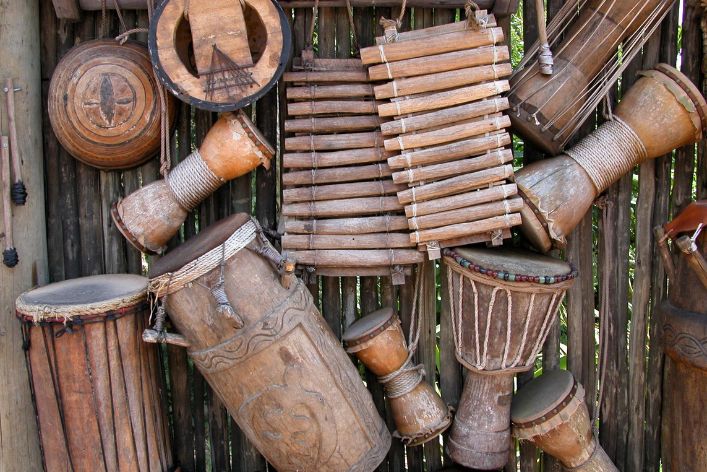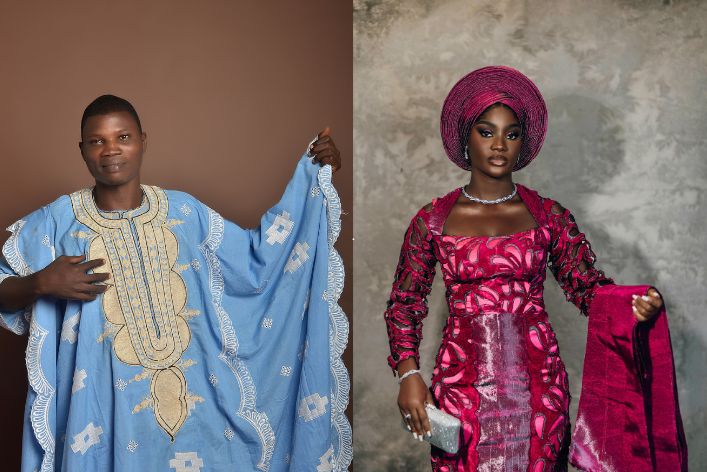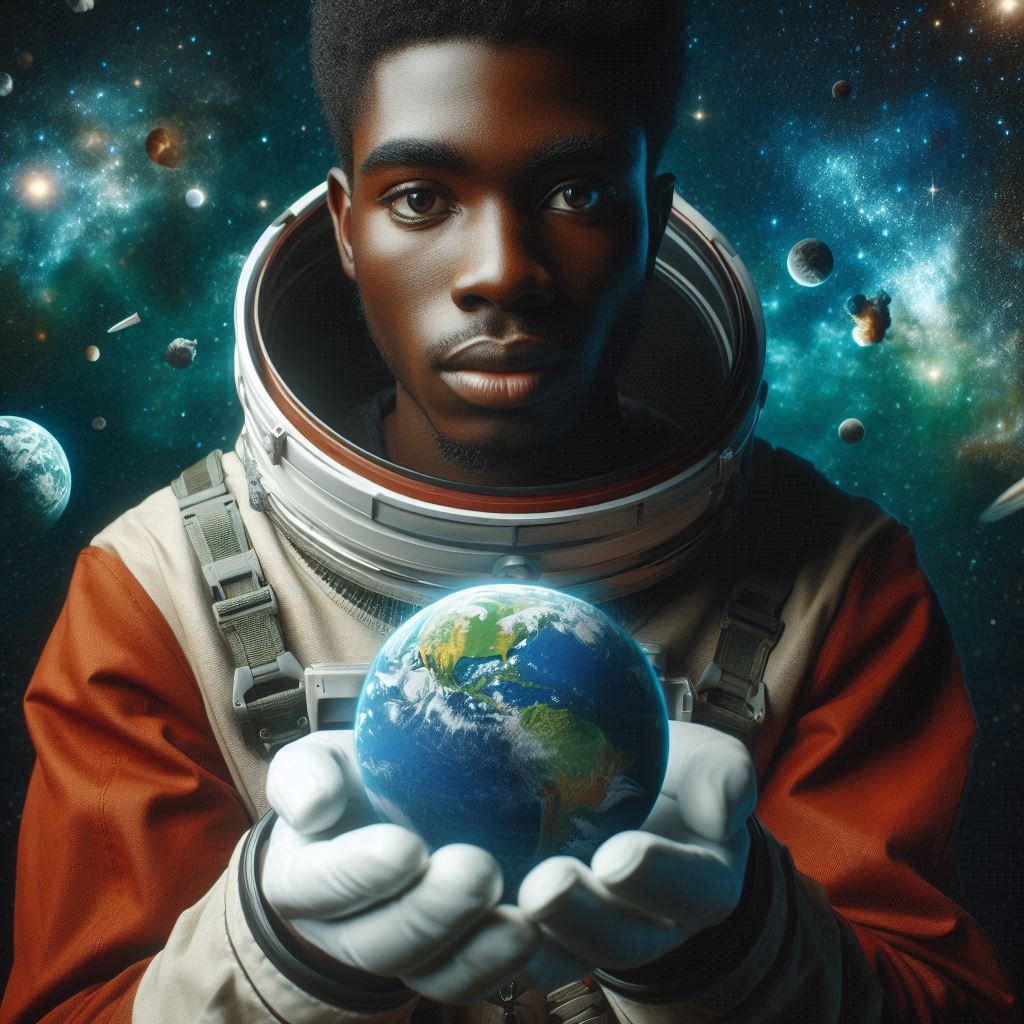The Yoruba (Yorùbá in Yoruba spelling) is one of the most prominent ethnolinguistic groups in sub-Saharan Africa.
About 21% of people in Nigeria today are Yoruba, frequently making up the majority in their local towns.
Ekiti, Lagos, Ogun, Ondo, Osun, and Oyo are home to a large Yoruba population, placing these political regions firmly under the influence of the group, which has a numerical advantage.
Although Yoruba are present throughout much of West Africa, including Benin, Ghana, and Togo, Yorubaland, a region in western Nigeria, has the highest Yoruba population.
The Borgu (also known as Bariba and Borgawa) is located northwest of Yorubaland, the Nupe and Ebira to the north, the San and Edo to the southeast, and the Igala and other closely related groups to the northeast.
The Yoruba people are renowned for their superb craftsmanship and regarded as the most knowledgeable and prolific people in Africa.
Their traditional occupations included blacksmithing, leatherworking, weaving, glassblowing, and carving ivory and wood.
Yorubaland’s numerous highly populated urban centres enable the concentration of wealth and the growth of a sophisticated market economy, which promotes widespread support for the arts.
Due to the slave trade of the eighteenth and nineteenth centuries, many Americans of African heritage claim some Yoruba ancestry.
Who are the Yoruba people?
The members of this ethnic group are still present in the south-western regions of Nigeria, where they have lived historically.
Approximately 35 million individuals identify as Yoruba now, which is rising along with the nation’s overall population growth.
It’s fascinating that Yoruba people make up the majority of Africans who reside outside of Africa.
Some of them voluntarily departed their native territories in Nigeria and other West African nations.
During the terrible era of slavery, others were abducted as slaves and transported to the Caribbean islands or either of the Americas.
Being a Yoruba entails belonging to an ethnic community that accepts a variety of people and unites them via a shared language and religion.
Innovative Tech Solutions, Tailored for You
Our leading tech firm crafts custom software, web & mobile apps, designed with your unique needs in mind. Elevate your business with cutting-edge solutions no one else can offer.
Start NowThese people are now united as a large, colourful family by historical ties, cultural affinities, and a sense of community.
Yoruba women, for instance, are renowned for their hard work and diligence.
They are supposed to be good wives for their husbands, much like any other African women, but they are also not constrained in their own accomplishments.
Folorunsho Alakija, one of the richest women in the world, is of Yoruba descent.
Read: Who Are Yoruba Gods and What Do They Stand For?

Remarkable facts about Yoruba culture
Location
West Africa is the home of the Yoruba. It spans southward from a zone of tropical rain forests to a region of savanna (grassland).
The majority of Yoruba reside in Nigeria.
To the west of Nigeria, there are also a few solitary groups in the small nations of Benin and Togo.
The Yoruba in the north and south have quite different jobs and lifestyles.
It is challenging to find recent census data.
There are thought to be 5.3 million Yoruba people worldwide.
Read: What is the Connection Between Oduduwa and Yoruba?
Language
The Congo-Kordofanian language family includes the Yoruba language.
Despite Yoruba’s numerous dialects, all of its speakers can comprehend one another.
Yoruba is a tonal language.
Depending on the pitch of the vowels, a given combination of vowels and consonants might have distinct meanings (whether they are pronounced with a high voice or a low voice).
For instance, based on intonation, the same word “oko” can denote various things, including husband, boat, farm, hoe and even the male genitalia.
“How are you?” is “Bawo ni,” and “Fine, thank you” is “Dada ni.”
Read: African Religious Practices: From Traditional Beliefs to Christianity & Islam
Folklore
According to a Yoruba creation myth, the deities (gods) initially dwelt in the sky, with only water beneath them.
Orisha, the God of Whiteness, received gifts from Olorun, the Sky God.
This included a chain, some dirt in a snail shell, and a five-toed chicken.
Orisha was instructed to descend and create the earth.
Orisha walked up to heaven’s gate.
Seamless API Connectivity for Next-Level Integration
Unlock limitless possibilities by connecting your systems with a custom API built to perform flawlessly. Stand apart with our solutions that others simply can’t offer.
Get StartedHe stopped to say hello to some gods he observed attending a party.
He drank too much of the palm wine they offered him before passing out.
His younger brother, Odua, observed Orishala dozing off. With Chameleon by his side, he took the supplies and travelled to the verge of heaven.
They descended it after he released the chain.
The five-toed fowl was set down on the earthy fragment that Odua had thrown into the water.
The chicken started to scratch the ground, distributing it all about.
Odua resigned after Chameleon had checked the stability of the ground.
There is now a sacred grove there.
Read: The Fascinating History of the Abakua Society: An Afro-Cuban Fraternity
Religion
Up to 20% of Yoruba people still follow the ancient religions of their ancestors.
Traditional religious observance differs from community to community.
For instance, a deity (god) might be female in one town and masculine in another.
According to the traditional Yoruba religion, there is a single supreme being and countless orisha, or subordinate deities.
A deity’s “children” are those who worship him or her.
Additionally, there are three universally accessible gods.
The lofty deity, or Sky God, is the Creator.
Prayers or pouring water on kola nuts lying on the ground are two ways to invoke him.
The divine messenger who brings sacrifices to Olorun after they are offered at his shrine is Eshu (also known as Legba by some).
So, everyone offers frequent prayers to this god.
The requests of Olorun are translated into human language by the God of Divination, Ifa.
In times of difficulty, followers of the Yoruba religion resort to Ifa.
Ogun, a different god associated with metalworking, the hunt, and war, is regarded as one of the most significant.
People who adhere to traditional beliefs in Yoruba courts promise to deliver accurate testimony by kissing an object that is precious to Ogun.
The god of thunder is called Sango.
Transform Business with Custom CRM & ERP Solutions
Elevate your operations with a CRM or ERP tailored for you. Let’s build the perfect solution that others can't replicate—crafted to match your business's needs like no other.
Get StartedThe Yoruba think that Sango had hurled a thunderstone to earth when thunder and lightning hit.
Religious leaders in Yorubaland look for the thunderstone, which is thought to possess extraordinary abilities, after a thunderstorm.
The stones are kept in Sango-themed shrines. Sango has four wives, each of whom stands for a Nigerian river.
Muslims (followers of Islam) and Christians make up the majority of Yoruba who practise other religions.
Almost all Yoruba still participate in annual festivals and other customary religious rituals.
Family life
Every Yoruba has a clan they are born into, and these clan members share an ancestor.
Sons and daughters are both born into their father’s clan in a patrilineal system of descent.
Clan members reside in a sizable neighbourhood known as a compound.
It is where men are born, married, and buried.
Females remain at the home where they were born until they get married.
After that, they move in with their spouses.
The leader of the compound is the oldest man, known as Bale.
Husbands are in charge of mediating disputes inside their own families.
But if he fails or if there is a dispute between members of two distinct families, the Bale is consulted.
The father, his wife, and their kids comprise the complex’s immediate family.
The Yoruba are polygamists (having more than one wife).
Every wife and her kids are regarded as their own little family.
They share goods and have their room at the husband’s house.
Every mother only prepares food for her own children.
Every wife should be treated equally by a guy.
Wives, however, compete to secure more favours for their own kids.
Father is stern and disengaged.
He doesn’t see much of his kids very often.
Children of co-wives play together when they are young.
Tailored Tech Solutions to Drive Your Business Forward
Maximize your business potential with custom tech strategies. We deliver bespoke solutions that others can’t match, designed to solve your specific challenges with precision and impact.
Contact UsBut when kids get older, disagreements over goods frequently cause them to drift apart.

Clothing
In cities, people dress in western attire.
Rural areas and special occasions still call for the wearing of traditional attire. It is intricate and vibrant.
Geometric patterns were block printed onto traditional textiles.
Women usually wear a rectangular-shaped cloth headband.
By putting another rectangular fabric around their waists, they can carry newborns or young children on their backs.
A loose-fitting, short-sleeved blouse can be layered with a third piece of clothing worn over the shoulder like a shawl.
A larger piece of fabric doubles as a skirt.
Conclusion
In conclusion, the Yoruba people stand out for their rich cultural heritage, deep-rooted traditions, and significant contributions to art, craftsmanship, and religion.
Their influence extends beyond Nigeria, with millions of Yoruba descendants found globally.
The community’s resilience, unity, and adaptability have allowed them to preserve their identity while embracing modernity.
So, understanding the Yoruba people offers valuable insights into their role in shaping West African history and culture.
Whether through their traditional arts, religious practices, or family structures, the Yoruba continue to leave a lasting impact on the world.
Before You Go…
Hey, thank you for reading this blog post to the end. I hope it was helpful. Let me tell you a little bit about Nicholas Idoko Technologies.
We help businesses and companies build an online presence by developing web, mobile, desktop, and blockchain applications.
We also help aspiring software developers and programmers learn the skills they need to have a successful career.
Take your first step to becoming a programming expert by joining our Learn To Code academy today!
Be sure to contact us if you need more information or have any questions! We are readily available.











